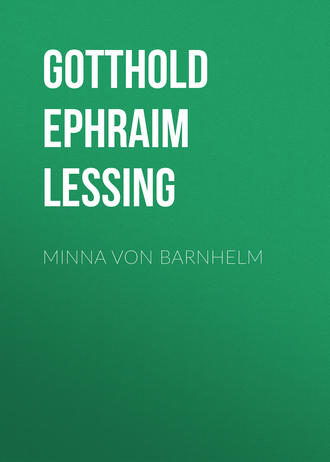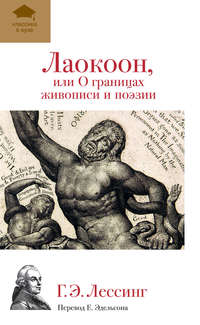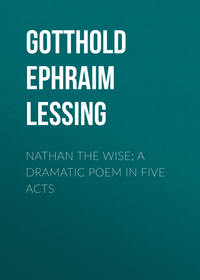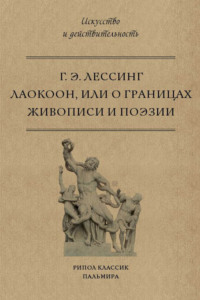
Minna Von Barnhelm
FRAN. (aside).
That sounds important, and deserves to be inquired into.
Mr. Freeholder, or Mr. Sergeant!!!!!
WER.
Little woman, if it makes no difference to you, I like "Mr. Sergeant" best.
FRAN.
Well, Mr. Sergeant, I have a note from the Major to my mistress. I will just carry it in, and be here again in a moment. Will you be so good as to wait? I should like very much to have a little talk with you.
WER.
Are you fond of talking, little woman? Well, with all my heart. Go quickly. I am fond of talking too: I will wait.
FRAN.
Yes, please wait.
(Exit.)
SCENE VI
Paul Werner
WER.
That is not at all a bad little woman. But I ought not to have promised her that I would wait, for it would be most to the purpose, I suppose, to find the Major. He will not have my money, but rather pawns his property. That is just his way. A little trick occurs to me. When I was in the town, a fortnight back, I paid a visit to Captain Marloff's widow. The poor woman was ill, and was lamenting that her husband had died in debt to the Major for four hundred thalers, which she did not know how to pay. I went to see her again to-day; I intended to tell her that I could lend her five hundred thalers, when I had received the money for my property; for I must put some of it by, if I do not go to Persia. But she was gone; and no doubt she has not been able to pay the Major. Yes, I'll do that; and the sooner the better. The little woman must not take it ill of me; I cannot wait.
(Is going in thought, and almost runs against the Major, who meets him.)
SCENE VII
Major Von Tellheim, Paul Werner
MAJ. T.
Why so thoughtful, Werner?
WER.
Oh! that is you. I was just going to pay you a visit in your new quarters, Major.
MAJ. T.
To fill my ears with curses against the Landlord of my old one. Do not remind me of it.
WER.
I should have done that by the way: yes. But more particularly, I wish to thank you for having been so good as to take care of my hundred louis d'ors. Just has given them to me again. I should have been very glad if you would have kept them longer for me. But you have got into new quarters, which neither you nor I know much about. Who knows what sort of place it is? They might be stolen, and you would have to make them good to me; there would be no help for it. So I cannot ask you to take them again.
MAJ. T. (smiling).
When did you begin to be so careful, Werner?
WER.
One learns to be so. One cannot now be careful enough of one's money.
I have also a commission for you, Major, from Frau Marloff; I have just come from her. Her husband died four hundred thalers in your debt; she sends you a hundred ducats here, in part payment. She will forward you the rest next week. I believe I am the cause that she has not sent you the whole sum. For she also owed me about eighty thalers, and she thought I was come to dun her for them—which, perhaps, was the fact—so she gave them me out of the roll which she had put aside for you. You can spare your hundred thalers for a week longer, better than I can spare my few groschens. There, take it!
(Hands him the ducats.)
MAJ. T.
Werner!
WER.
Well! Why do you stare at me so? Take it, Major!
MAJ. T.
Werner!
WER.
What is the matter with you? What annoys you?
MAJ. T. (angrily striking his forehead, and stamping with his foot.)
That… the four hundred thalers are not all there.
WER.
Come! Major, did not you understand me?
MAJ. T.
It is just because I did understand you! Alas, that the best men should to-day distress me most!
WER.
What do you say?
MAJ. T.
This only applies partly to you. Go, Werner!
(Pushing back Werner's hand with the money in it.)
WER.
As soon as I have got rid of this.
MAJ. T.
Werner, suppose I tell you that Frau Marloff was here herself early this morning!!!!!
WER.
Indeed?
MAJ. T.
That she owes me nothing now!!!!!
WER.
Really?
MAJ. T.
That she has paid me every penny—What will you say then?
WER. (thinks for a minute).
I shall say that I have told a lie, and that lying is a low thing, because one may be caught at it.
MAJ. T.
And you will be ashamed of yourself?
WER.
And what of him who compels me to lie? Should not he be ashamed too?
Look ye, Major; if I was to say that your conduct has not vexed me, I should tell another lie, and I won't lie any more.
MAJ. T.
Do not be annoyed, Werner. I know your heart, and your affection for me. But I do not require your money.
WER.
Not require it! Rather sell, rather pawn, and get talked about!
MAJ. T.
Oh! people may know that I have nothing more. One must not wish to appear richer than one is.
WER.
But why poorer? A man has something as long as his friend has.
MAJ. T.
It is not proper that I should be your debtor.
WER.
Not proper! On that summer day which the sun and the enemy made hot for us, when your groom, who had your canteen, was not to be found, and you came to me and said—"Werner, have you nothing to drink?" and I gave you my flask, you took it and drank, did you not? Was that proper? Upon my life, a mouthful of dirty water at that time was often worth more than such filth
(taking the purse also out of his pocket, and holding out both to him).
Take them, dear Major! Fancy it is water. God has made this, too, for all.
MAJ. T.
You torment me: don't you hear, I will not be your debtor.
WER.
At first, it was not proper; now, you will not. Ah! that is a different thing.
(Rather angrily.)
You will not be my debtor? But suppose you are already, Major? Or, are you not a debtor to the man who once warded off the blow that was meant to split your head; and, at another time, knocked off the arm which was just going to pull and send a ball through your breast? How can you become a greater debtor to that man? Or, is my neck of less consequence than my money? If that is a noble way of thinking, by my soul it is a very silly one too.
MAJ. T.
To whom do you say that, Werner? We are alone, and therefore I may speak; if a third person heard us, it might sound like boasting. I acknowledge with pleasure, that I have to thank you for twice saving my life. Do you not think, friend, that if an opportunity occurred I would have done as much for you, eh?
WER.
If an opportunity occurred! Who doubts it, Major? Have I not seen you risk your life a hundred times for the lowest soldier, when he was in danger?
MAJ. T.
Well!
WER.
But!!!!!
MAJ. T.
Why cannot you understand me? I say, it is not proper that I should be your debtor; I will not be your debtor. That is, not in the circumstances in which I now am.
WER.
Oh! so you would wait till better times. You will borrow money from me another time, when you do not want any: when you have some yourself, and I perhaps none.
MAJ. T.
A man ought not to borrow, when he has not the means of repaying.
WER.
A man like yourself cannot always be in want.
MAJ. T.
You know the world… Least of all should a man borrow from one who wants his money himself.
WER.
Oh! yes; I am such a one! Pray, what do I want it for? When they want a sergeant, they give him enough to live on.
MAJ. T.
You want it, to become something more than a sergeant—to be able to get forward in that path in which even the most deserving, without money, may remain behind.
WER.
To become something more than a sergeant! I do not think of that. I am a good sergeant; I might easily make a bad captain, and certainly a worse general.
MAJ. T.
Do not force me to think ill of you, Werner! I was very sorry to hear what Just has told me. You have sold your farm, and wish to rove about again. Do not let me suppose that you do not love the profession of arms so much as the wild dissolute way of living which is unfortunately connected with it. A man should be a soldier for his own country, or from love of the cause for which he fights. To serve without any purpose—to-day here, to-morrow there—is only travelling about like a butcher's apprentice, nothing more.
WER.
Well, then, Major, I will do as you say. You know better what is right. I will remain with you. But, dear Major, do take my money in the meantime. Sooner or later your affairs must be settled. You will get money in plenty then; and then you shall repay me with interest. I only do it for the sake of the interest.
MAJ. T.
Do not talk of it.
WER.
Upon my life, I only do it for the sake of the interest. Many a time I have thought to myself—"Werner, what will become of you in your old age? when you are crippled? when you will have nothing in the world?
when you will be obliged to go and beg!" And then I thought again— "No, you will not be obliged to beg: you will go to Major Tellheim; he will share his last penny with you; he will feed you till you die; and with him you can die like an honest fellow."
MAJ. T. (taking Werner's hand).
And, comrade, you do not think so still?
WER.
No, I do not think so any longer. He who will not take anything from me, when he is in want, and I have to give, will not give me anything when he has to give, and I am in want. So be it.
(Is going.)
MAJ. T.
Man, do not drive me mad! Where are you going?
(Detains him.)
If I assure you now, upon my honour, that I still have money—If I assure you, upon my honour, that I will tell you when I have no more— that you shall be the first and only person from whom I will borrow anything—will that content you?
WER.
I suppose it must. Give me your hand on it, Major.
MAJ. T.
There, Paul! And now enough of that, I came here to speak with a certain young woman.
SCENE VIII
Franziska (coming out of Minna's room), Major von Tellheim, Paul Werner
FRAN. (entering).
Are you there still, Mr. Sergeant?
(Seeing Tellheim.)
And you there too, Major? I will be at your service instantly.
(Goes back quickly into the room.)
SCENE IX
Major von Tellheim, Paul Werner
MAJ. T.
That was she! But it seems you know her, Werner.
WER.
Yes, I know her.
MAJ. T.
Yet, if I remember rightly, when I was in Thuringia you were not with me.
WER.
No; I was seeing after the uniforms in Leipsic.
MAJ. T.
Where did you make her acquaintance, then?
WER.
Our acquaintance is very young. Not a day old. But young friendship is warm.
MAJ. T.
Have you seen her mistress, too?
WER.
Is her mistress a young lady? She told me you are acquainted with her mistress.
MAJ. T.
Did not you hear? She comes from Thuringia.
WER.
Is the lady young?
MAJ. T.
Yes.
WER.
Pretty?
MAJ. T.
Very pretty.
WER.
Rich?
MAJ. T.
Very rich.
WER.
Is the mistress as fond of you as the maid is? That would be capital!
MAJ. T.
What do you mean?
SCENE X
Franziska (with a letter in her hand), Major von Tellheim, Paul Werner
FRAN.
Major!!!!!
MAJ. T.
Franziska, I have not yet been able to give you a "Welcome" here.
FRAN.
In thought, I am sure that you have done it. I know you are friendly to me; so am I to you. But it is not at all kind to vex those who are friendly to you so much.
WER. (aside).
Ah! now I see it. It is so!
MAJ. T.
My destiny, Franziska! Did you give her the letter?
FRAN.
Yes; and here I bring you…
(holding out a letter).
MAJ. T.
An answer!
FRAN.
No, your own letter again.
MAJ. T.
What! She will not read it!
FRAN.
She would have liked, but—we can't read writing well.
MAJ. T.
You are joking!
FRAN.
And we think that writing was not invented for those who can converse with their lips whenever they please.
MAJ. T.
What an excuse! She must read it. It contains my justification—all the grounds and reasons!!!!!
FRAN.
My mistress wishes to hear them all from you yourself, not to read them.
MAJ. T.
Hear them from me myself! That every look, every word of hers, may embarrass me; that I may feel in every glance the greatness of my loss.
FRAN.
Without any pity! Take it.
(Giving him his letter.)
She expects you at three o'clock. She wishes to drive out and see the town; you must accompany her.
MAJ. T.
Accompany her!
FRAN.
And what will you give me to let you drive out by yourselves? I shall remain at home.
MAJ. T.
By ourselves!
FRAN.
In a nice close carriage.
MAJ. T.
Impossible!
FRAN.
Yes, yes, in the carriage, Major. You will have to submit quietly; you cannot escape there! And that is the reason. In short, you will come, Major, and punctually at three.... Well, you wanted to speak to me too alone. What have you to say to me? Oh! we are not alone.
(Looking at Werner.)
MAJ. T.
Yes, Franziska; as good as alone. But as your mistress has not read my letter, I have nothing now to say to you.
FRAN.
As good as alone! Then you have no secrets from the Sergeant?
MAJ. T.
No, none.
FRAN.
And yet I think you should have some from him.
MAJ. T.
Why so?
WER.
How so, little woman?
FRAN.
Particularly secrets of a certain kind.... All twenty, Mr.
Sergeant!
(Holding up both her hands, with open fingers.)
WER.
Hist! hist! girl.
MAJ. T.
What is the meaning of that?
FRAN.
Presto! conjured on to his finger, Mr. Sergeant
(as if she was putting a ring on her fingers).
MAJ. T.
What are you talking about?
WER.
Little woman, little woman, don't you understand a joke?
MAJ. T.
Werner, you have not forgotten, I hope, what I have often told you;
that one should not jest beyond a certain point with a young woman!
WER.
Upon my life I may have forgotten it! Little woman, I beg!!!!!
FRAN.
Well, if it was a joke, I will forgive you this once.
MAJ. T.
Well, if I must come, Franziska, just see that your mistress reads my letter beforehand? That will spare me the pain of thinking again—of talking again, of things which I would willingly forget. There, give it to her!
(He turns the letter in giving it to her, and sees that it has been opened.)
But do I see aright? Why it has been opened.
FRAN.
That may be.
(Looks at it.)
True, it is open. Who can have opened it? But really we have not read it, Major; really not. And we do not wish to read it, because the writer is coming himself. Come; and I tell you what, Major! don't come as you are now—in boots, and with such a head. You are excusable, you do not expect us. Come in shoes, and have your hair fresh dressed. You look too soldierlike, too Prussian for me as you are.
MAJ. T.
Thank you, Franziska.
FRAN.
You look as if you had been bivouacking last night.
MAJ. T.
You may have guessed right.
FRAN.
We are going to dress, directly too, and then have dinner. We would willingly ask you to dinner, but your presence might hinder our eating; and observe, we are not so much in love that we have lost our appetites.
MAJ. T.
I will go. Prepare her somewhat, Franziska, beforehand, that I may not become contemptible in her eyes, and in my own. Come, Werner, you shall dine with me.
WER.
At the table d'hote here in the house? I could not eat a bit there.
MAJ. T.
With me, in my room.
WER.
I will follow you directly. One word first with the little woman.
MAJ. T.
I have no objection to that.
(Exit.)
SCENE XI
Paul Werner, Franziska
FRAN.
Well, Mr. Sergeant!
WER.
Little woman, if I come again, shall I too come smartened up a bit?
FRAN.
Come as you please: my eyes will find no fault with you. But my ears will have to be so much the more on their guard. Twenty fingers, all full of rings. Ah! ah! Mr. Sergeant!
WER.
No, little woman; that is just what I wished to say to you. I only rattled on a little. There is nothing in it. One ring is quite enough for a man. Hundreds and hundreds of times I have heard the Major say—
"He must be a rascally soldier, who can mislead a young girl." So think I too, little woman. You may trust to that! I must be quick and follow him. A good appetite to you.
(Exit.)
FRAN.
The same to you! I really believe, I like that man!
(Going in, she meets Minna coming out.)
SCENE XII
Minna, Franziska
MIN.
Has the Major gone already, Franziska? I believe I should have been sufficiently composed again now to have detained him here.
FRAN.
And I will make you still more composed.
MIN.
So much the better! His letter! oh! his letter! Each line spoke the honourable noble man. Each refusal to accept my hand declared his love for me. I suppose he noticed that we had read his letter. I don't mind that, if he does but come. But are you sure he will come? There only seems to me to be a little too much pride in his conduct. For not to be willing to be indebted for his good fortune, even to the woman he loves, is pride, unpardonable pride! If he shows me too much of this,
Franziska!!!!!
FRAN.
You will discard him!
MIN.
See there! Do you begin to pity him again already! No, silly girl, a man is never discarded for a single fault. No; but I have thought of a trick to pay him off a little for this pride, with pride of the same kind.
FRAN.
Indeed, you must be very composed, my lady, if you are thinking of tricks again.
MIN.
I am so; come. You will have a part to play in my plot.
(Exeunt.)
ACT IV
SCENE I
Minna's Room.
Minna (dressed handsomely and richly, but in good taste), Franziska
(They have just risen from a table, which a servant is clearing.)
FRAN.
You cannot possibly have eaten enough, my lady.
MIN.
Don't you think so, Franziska? Perhaps I had no appetite when I sat down.
FRAN.
We had agreed not to mention him during dinner. We should have resolved likewise, not to think of him.
MIN.
Indeed, I have thought of nothing but him.
FRAN.
So I perceived. I began to speak of a hundred different things, and you made wrong answers to each.
(Another servant brings coffee.)
Here comes a beverage more suited to fancies—sweet, melancholy coffee.
MIN.
Fancies! I have none. I am only thinking of the lesson I will give him. Did you understand my plan, Franziska?
FRAN.
Oh! yes; but it would be better if he spared us the putting it in execution.
MIN.
You will see that I know him thoroughly. He who refuses me now with all my wealth, will contend for me against the whole world, as soon as he hears that I am unfortunate and friendless.
FRAN. (seriously).
That must tickle the most refined self-love.
MIN.
You moralist! First you convict me of vanity—now of self-love. Let me do as I please, Franziska. You, too, shall do as you please with your Sergeant.
FRAN.
With my Sergeant?
MIN.
Yes. If you deny it altogether, then it is true. I have not seen him yet; but from all you have said respecting him, I foretell your husband for you.
SCENE II
Riccaut De La Marliniere, Minna, Franziska
RIC. (before he enters).
Est-il permis, Monsieur le Major?
FRAN.
Who is that? Any one for us?
(going to the door).
RIC.
Parbleu! I am wrong. Mais non—I am not wrong. C'est la chambre!!!!!
FRAN.
Without doubt, my lady, this gentleman expects to find Major von Tellheim here still.
RIC.
Oui, dat is it! Le Major de Tellheim; juste, ma belle enfant, c'est lui que je cherche. Ou est-il?
FRAN.
He does not lodge here any longer.
RIC.
Comment? Dere is four-and-twenty hour ago he did lodge here, and not lodge here any more? Where lodge he den?
MIN. (going up to him).
Sir!!!!!
RIC.
Ah! Madame, Mademoiselle, pardon, lady.
MIN.
Sir, your mistake is quite excusable, and your astonishment very natural. Major von Tellheim has had the kindness to give up his apartments to me, as a stranger, who was not able to get them elsewhere.
RIC.
Ah! voila de ses politesses! C'est un tres-galant homme que ce Major!
MIN.
Where has he gone now?—truly I am ashamed that I do not know.
RIC.
Madame not know? C'est dommage; j'en suis fache.
MIN.
I certainly ought to have inquired. Of course his friends will seek him here.
RIC.
I am vary great his friend, Madame.
MIN.
Franziska, do you not know?
FRAN.
No, my lady.
RIC.
It is vary necessaire dat I speak him. I come and bring him a nouvelle, of which he will be vary much at ease.
MIN.
I regret it so much the more. But I hope to see him perhaps shortly.
If it is a matter of indifference from whom he hears this good news, I would offer, sir!!!!!
RIC.
I comprehend. Mademoiselle parle francais? Mais sans doute; telle que je la vois! La demande etait bien impolie; vous me pardonnerez, Mademoiselle.
MIN.
Sir!!!!!
RIC.
No! You not speak French, Madame?
MIN.
Sir, in France I would endeavour to do so; but why here? I perceive that you understand me, sir; and I, sir, shall doubtless understand you; speak as you please.
RIC.
Good, good! I can also explain me in your langue. Sachez donc, Mademoiselle, you must know, Madame, dat I come from de table of de ministre, ministre de, ministre de… What is le ministre out dere, in de long street, on de broad place?
MIN.
I am a perfect stranger here.
RIC.
Si, le ministre of de war departement. Dere I have eat my dinner; I ordinary dine dere, and de conversation did fall on Major Tellheim; et le ministre m'a dit en confidence, car Son Excellence est de mes amis, et il n'y a point de mysteres entre nous; Son Excellence, I say, has trust to me, dat l'affaire from our Major is on de point to end, and to end good. He has made a rapport to de king, and de king has resolved et tout a fait en faveur du Major. "Monsieur," m'a dit Son Excellence, "vous comprenez bien, que tout depend de la maniere, dont on fait envisager les choses au roi, et vous me connaissez. Cela fait un tres-joli garcon que ce Tellheim, et ne sais-je pas que vous l'aimez? Les amis de mes amis sont aussi les miens. Il coute un peu cher au Roi ce Tellheim, mais est-ce que l'on sert les rois pour rien? Il faut s'entr'aider en ce monde; et quand il s'agit de pertes, que ce soit le Roi qui en fasse, et non pas un honnete homme de nous autres. Voila le principe, dont je ne me depars jamais." But what say Madame to it? N'est pas, dat is a fine fellow! Ah! que Son Excellence a le coeur bien place! He assure me au reste, if de Major has not recu already une lettre de la main—a royal letter, dat to-day infailliblement must he receive one.
MIN.
Certainly, sir, this news will be most welcome to Major von Tellheim.
I should like to be able to name the friend to him, who takes such an interest in his welfare.
RIC.
Madame, you wish my name? Vous voyez en moi—you see, lady, in me, le Chevalier Riccaut de la Marliniere, Seigneur de Pret-au-val, de la branche de Prens d'or. You remain astonished to hear me from so great, great a family, qui est veritablement du sang royal. Il faut le dire;
je suis sans doute le cadet le plus aventureux que la maison n'a jamais eu. I serve from my eleven year. Une affaire d'honneur make me flee. Den I serve de holy Papa of Rome, den de Republic St. Marino, den de Poles, den de States General, till enfin I am brought her. Ah! Mademoiselle, que je voudrais n'avoir jamais vu ce pays-ci! Had one left me in de service of de States General, should I be now at least colonel. But here always to remain capitaine, and now also a discharged capitaine.








